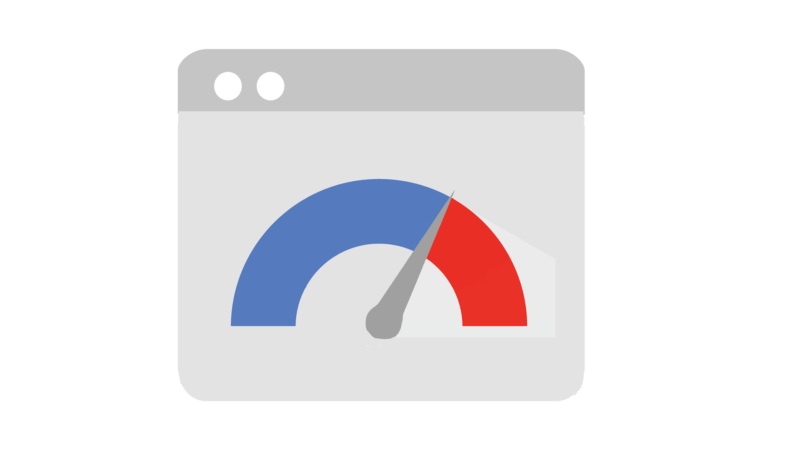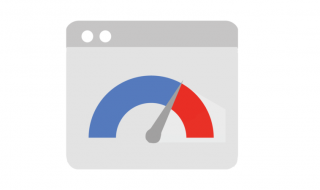
In today's fast-paced world, patience is a scarce commodity. This extends to our online experiences. Imagine waiting for a website to load – a spinning wheel of doom, a blank screen, precious seconds ticking by. Frustration sets in, and for many users, that means clicking away and heading to a competitor's site. This is where page speed comes into play.
Page speed refers to how quickly the content on a webpage loads after a user clicks or taps a link. It encompasses everything from server response time to image optimization and plays a critical role in user experience (UX). In this article, we'll delve into the impact of page speed on UX, explore the factors that influence it, and provide valuable tips to optimize your website for a speedy and satisfying user experience.
The User Experience Equation: Why Page Speed Matters
Think of your website as a storefront window. A slow-loading website is like a dusty, cluttered window – it creates a negative impression and discourages potential customers from entering (or in the digital world, clicking through). Here's how page speed impacts UX:
- First Impressions Matter: Studies show that users form an opinion about a website within milliseconds of landing on it. A slow load time can lead to a poor first impression, discouraging users from exploring further.
- Attention Spans are Shrinking: In today's digital age, users have limited attention spans. If a website takes too long to load, they're likely to bounce and head to a competitor's site that offers a faster experience.
- Engagement and Conversions: Faster page speeds can significantly improve user engagement. Users are more likely to explore a website, read content, and take desired actions (like making a purchase or filling out a form) if the pages load quickly.
- Search Engine Ranking: Page speed is a confirmed ranking factor for search engines like Google. A faster website is more likely to rank higher in search results pages (SERPs), increasing organic visibility and attracting more qualified traffic.
Behind the Scenes: Factors Affecting Page Speed
Several factors contribute to page speed, and understanding them is crucial for optimization:
- Server Response Time: The time it takes for your web server to respond to a user's request. Factors like server load and hardware limitations can impact response time.
- File Size: Larger files, particularly images and videos, take longer to load. Optimizing images and using efficient video formats can significantly improve page speed.
- Number of HTTP Requests: Every element on a webpage – images, scripts, stylesheets – requires a separate HTTP request. Minimizing the number of requests can improve speed.
- Website Code: Clean, well-written code loads faster than complex, bloated code.
- Caching: Caching stores frequently accessed website elements on a user's device, allowing them to load faster on subsequent visits.
Optimizing for Speed: Tips for a Faster Website
Fortunately, there are several steps you can take to optimize your website for speed:
- Image Optimization: Reduce image file sizes without sacrificing quality.
- Minify Code: Minification removes unnecessary characters and whitespace from your website's code, making it smaller and faster to load.
- Leverage Browser Caching: Set appropriate caching headers to instruct browsers to store website elements locally, improving load times for returning visitors.
- Reduce HTTP Requests: Combine multiple CSS and JavaScript files into fewer files to minimize the number of requests needed to load the page.
- Compress Content: Gzip compression reduces the size of website files before they are sent to the user's browser, resulting in faster loading times.
- Choose a Reliable Web Hosting Provider: A reliable web hosting provider witha robust infrastructure ensures your website has the resources it needs to handle traffic efficiently.
- Utilize a Content Delivery Network (CDN): A CDN stores copies of your website's content on servers around the globe, delivering content to users from the closest server, reducing latency and improving load times.
Webxloo: Your Partner in Speed Optimization
At Webxloo, we understand the importance of page speed for a successful online presence. We offer a comprehensive suite of services to help you optimize your website for speed, including:
- Website Speed Audits: We conduct thorough website speed audits to identify areas for improvement and provide actionable recommendations.
- Image Optimization Services: Our team utilizes advanced techniques to optimize your website images for faster loading times without compromising quality.
Website Performance Optimization: Our developers can streamline your website's code and leverage caching strategies to ensure optimal performance.




 Phone Consultation
Phone Consultation
 Request a quote
Request a quote
 Text a Message
Text a Message